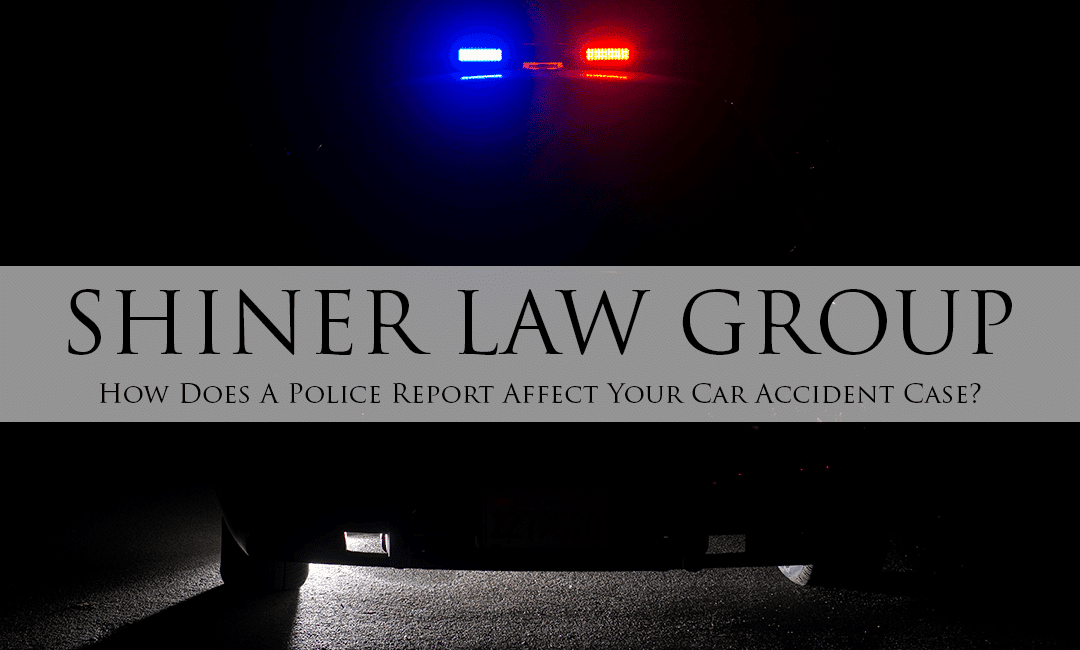When a car accident occurs, police are usually called by the parties involved in the accident. However, police may not be dispatched to the scene of the accident if no one suffered an injury. In that case, the parties involved in the accident must collect the information and then file a police report.
If the police do come, they’ll prepare an official police report. Insurance agents usually request a police report when a person files a claim. The police report can have a major impact on the outcome of a personal injury claim. In this post, we’ll show you how effective a police report can be in your accident case.

Accidents That Involve Injuries
If you get involved in a car accident, immediately call 911. The dispatcher will send paramedics and/or police to the scene of the accident depending on the severity of the accident. The paramedics will attend to you if you sustained an injury and other parties who may have gotten injured while the police will assess the accident. The police will focus on the scene of the accident.
Police officers are trained in investigating accidents and determining their cause. Typically, the official police report isn’t created by the police officers at the accident scene. They take notice of all the important things, gather information and then complete the report based on the data collected from the scene.
The information that the police may gather at the accident scene include:
- The location, time and date of the car accident
- Name, phone no. and address of the parties involved in the accident
- Description of injuries (if any) that resulted from the accident
- Description of all vehicles that were involved in the accident. This includes taking identification numbers of vehicles and license plate numbers
- Potential causes of the accident
- Comments of witnesses
- Conditions at the accident scene i.e. weather conditions, road conditions
Additionally, police may also take photographs of the accident scene. This includes taking pictures of the road and the vehicles involved in the car accident. Police may also conduct sobriety tests of drivers involved in the accident to determine if anyone was driving under the influence. If drivers were found under the influence, police will arrest them. Police may issue tickets depending on the assessment.
Once police have collected all the information they deem necessary, they’ll return to the station and start writing the official police report of the accident. A police report can be collected once it is completed.
You may be required to pay a fee to get a police report. Police reports are easy to comprehend, however some information like weather conditions and road conditions may be expressed as codes. You should ask the police about the meaning of the codes.
If the police didn’t determine who was at fault in the accident, they will not state it in the report. It is essential to know that even if the fault is assigned to a particular person in the police report, this doesn’t mean that this person will be liable for the injuries in a personal injury claim. That’s because information in the report compiled by the police is not solely facts. It is basically a mix of opinion and facts. While the location, date and time of the accident is obvious a fact, the rest of the information is opinion – including assignment of fault.
The Police Report is Required for an Insurance Claim
When you are seeking compensation from your insurance provider, you may have to provide the police report of the accident. Some insurance claim adjusters obtain the official police report themselves from the police station. Regardless, police report should still be kept on hand as you may have to include it with your insurance demand letter and provide it to an attorney if you file a personal injury lawsuit.
Even if the person who was at fault in the accident has been specifically highlighted in the police report, your insurance claim adjuster will still investigate the case. Some claim adjusters believe that the police can make mistakes when investigating the accident and they want to do their own research to determine the person at fault. Claim adjusters may uncover something that was missed by the police officers during the investigation of the accident. However, mostly the facts found by the claims adjuster match those listed in the police report.
Police reports are given importance in personal injury claims that are made to an insurer. If the claim adjuster doesn’t agree with the fault’s assessment of the police and the case goes to the court, the jury will likely rely on the opinion of the police officer. Police reports are highly persuasive; therefore, if you don’t agree with the contents of a police report, contact an experienced attorney to discuss your case.
If Fault is Not Assigned in the Police Report
There is a good chance that the police report doesn’t state who was responsible for the accident. In that case, the claim adjuster will complete their own investigation to determine who was at fault. You should gather evidence that you can provide to the claims adjuster to strengthen your claim against the person at fault if the police report doesn’t state the person responsible for the accident. At the scene of the accident, you should gather evidence by taking pictures of the car and talking to witnesses. Information you collect at the scene of the accident can help the insurance agent determine fault and who is liable for the financial costs associated with the car accident.